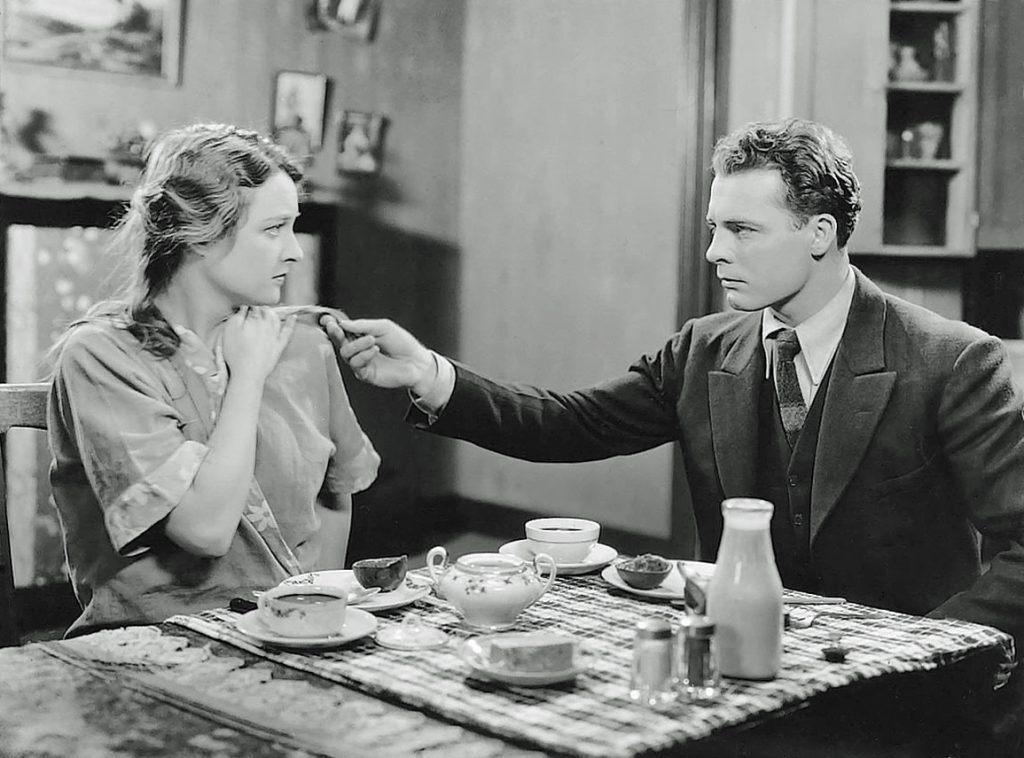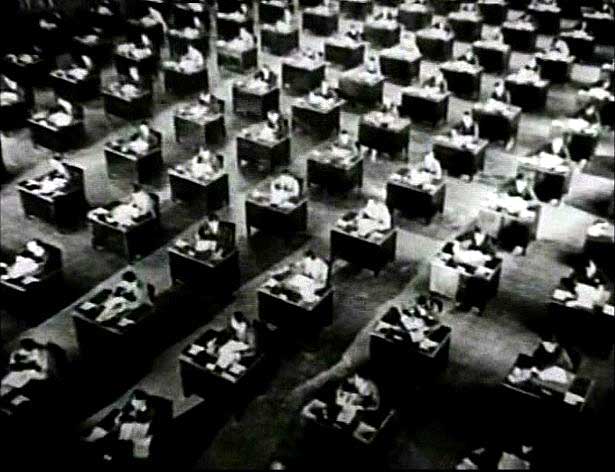Here’s the second instalment in my ‘New York State of Mind’ series.
The Crowd is about a man who moves to a big city and waits for his life to get started, without realising that his life has become waiting. So desperate is he to stand out from the crowd, he never considers there might be a worse fate: falling out of step with it.
John Sims (James Murray) knows he is destined for great things. His father always told him so. Young and full of self-confidence, he moves to New York City to make his fortune and when he catches sight of it for the first time from the ferry, Manhattan seems to unfold before him, glowing with promise. A fellow passenger leans over and offers a warning: “You’ve gotta be good in that town if you want to beat the crowd.” “Maybe,” John replies, “but all I want is the opportunity.” He gets a desk job in an office, the first rung on the ladder to success and waits for the world to notice him. A little later, he meets and marries Mary (Eleanor Boardman) and starts a family. And still, he waits. Time passes, the city changes but John seems to be standing still.
The Crowd has three central characters and the greatest is New York itself. Director King Vidor filmed on location—hiding cameras in crates for candid shots—and presents the city as a mass organism teeming with life. Crowds of pedestrians dissolve into one other; streams of traffic are superimposed over each other in a visual cacophony. Every other building is a monolith reaching heavenwards. Vidor, who co-wrote the script with John V. A. Weaver, also captures the overwhelming, at times dehumanising nature of big city life. An intertitle declares: “When John was twenty-one he became one of the seven million that believe New York depends on them.” Yet the city swallows him whole. In one remarkable sequence, the camera arcs up the side of a skyscraper and the shot dissolves at a window, taking viewers through the glass to reveal an overhead view of an endless room filled with identical desks, each manned by a single figure hard at work. The camera sweeps over row upon row before coming to rest on one desk and one man. A close-up on his nameplate reveals him to be ‘John Sims 137’—the great individualist, now a corporate drone. (The magnificent camerawork was by Henry Sharp.)
Vidor’s film has the sweep of an epic but it’s also an intimate story of two people, John and Mary, whose relationship is partially shaped by the city in which they live. The newlyweds move into their first apartment, a tiny cubbyhole with a Murphy bed and an elevated train rattling outside. Snug quickly becomes cramped and within months both the Sims and their home are worse for wear. The couple speak to each other from either side of a cupboard door that juts out into the middle of the room, angrily swatting it between them as it swings in front of their faces. Breakfast dissolves into a litany of complaints. Neither of them says what they really mean: John promised himself and Mary more than this. Eventually they reconcile, but this will be the first crisis of many. The Crowd evolves into a complex portrait of a marriage with Mary, a realist who accepts life as it comes, nevertheless devoted to John, whose complacency sometimes verges on fecklessness.
Astonishingly, this was James Murray’s first film. Vidor spotted him working as an extra at MGM and thought he would be perfect for the part. He was right. Murray is deeply poignant as John, a man who simply isn’t as talented or accomplished as he thinks and whose life begins to crumble as harsh reality encroaches on his fantasies. At times he is unbearably raw. Watch him run blindly into the street to beg the city—with its raucous newsies and fire engines and passers-by—to be quiet so his desperately ill child might rest and try not to weep. Eleanor Boardman is equally touching as Mary, who slowly transforms from a joyous newly-wed to a put-upon wife and mother, taken for granted by a family that would be entirely lost without her.
The Crowd is a bittersweet study of two ordinary people and the dazzling, brutal city that forms the backdrop to their lives. For every person who achieves their dreams, hundreds don’t. John spends his life waiting for the moment when he will finally stand out, only to learn there is no shame in anonymity. There is sorrow and joy, victory and defeat behind every face in the crowd.


Leave a Reply